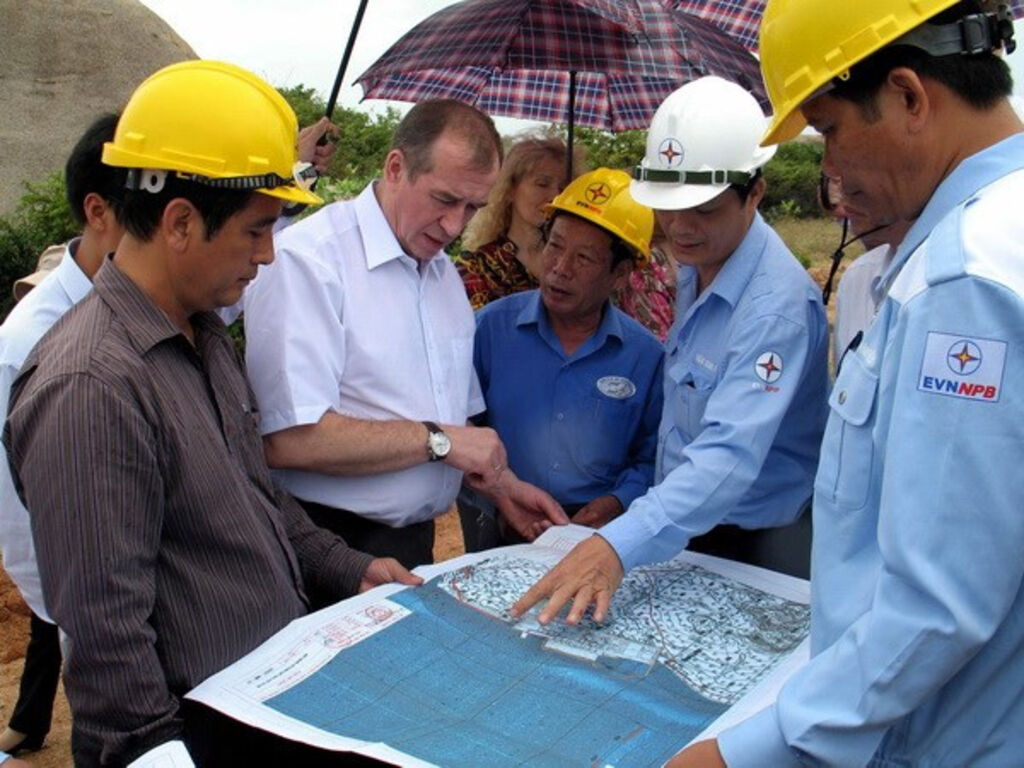 |
| Russian and Vietnamese experts survey the site for the Ninh Thuan 1 nuclear power plant__Photo: VNA |
The Government leader on May 26 approved a scheme on training human resources for nuclear power development by 2035, which is designated to meet the human resources demand of the Ninh Thuan 1 and Ninh Thuan 2 nuclear power plants by 2030.
Under Decision 1012/QD-TTg, the total workforce required for Ninh Thuan 1 is approximately 1,920 people, including 1,020 with university degrees and 900 with college-level qualifications. Of the university-level workforce, 320 individuals will be newly trained abroad.
For Ninh Thuan 2, the total personnel needed is around 1,980 people, including 1,050 with university and postgraduate degrees and 930 with college-level qualifications. Among them, 350 individuals with university and postgraduate degrees will receive training overseas.
By 2030, the project aims to provide short-term intensive training and internships on specialized skills in plant management and operation for approximately 700 personnel, including officials, civil servants, public employees, and experts currently working in ministries, sectors, and institutions involved in nuclear power training and research.
In addition, it plans to update knowledge for around 450 lecturers, researchers, and technicians currently engaging in teaching at universities, research institutes, and colleges that offer nuclear power-related programs.
Regarding the training of specialized lecturers to support the development of human resources for the two plants, the project sets a target to train approximately 120 lecturers in nuclear power disciplines, including 80 master's degree holders and 40 PhDs, to supplement the teaching staff at the institutions tasked with training and developing human resources for these plants.
For the 2031-35 period, human resources training and development aim to meet the actual manpower needs of the nuclear power plants.
To achieve these targets, efforts will be made to better policies and mechanisms, invest in and improve infrastructure, update and perfect training content and curricula, and promote international cooperation.- (VLLF)









